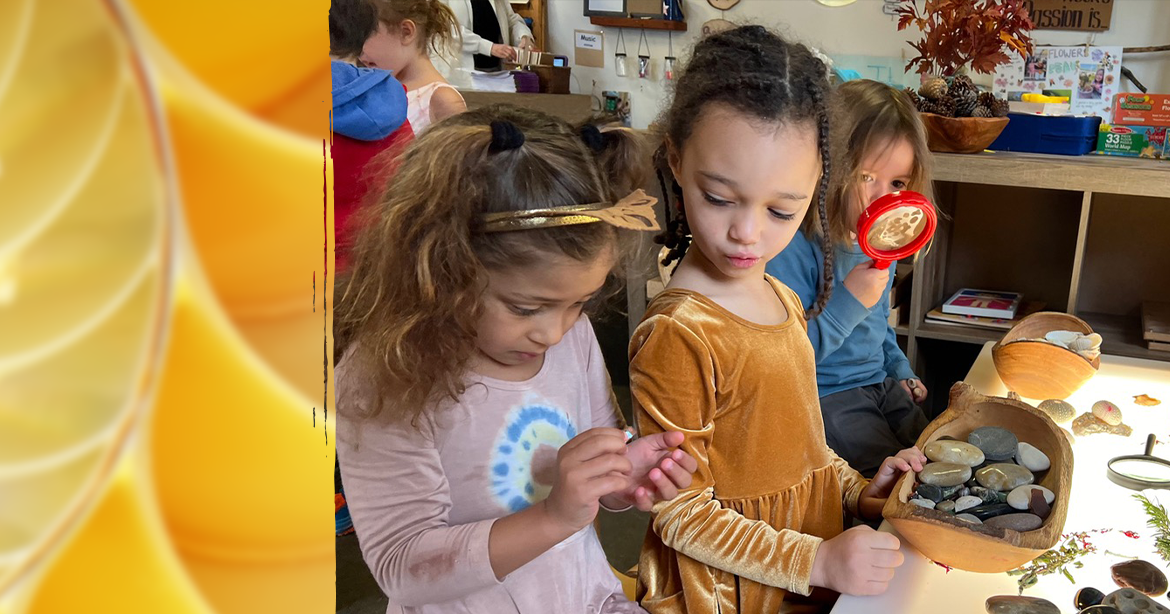How Flexibility Improves Early Childhood Education

An Interview with the Director of MUSE’s Early Childhood Education
Choosing the right early childhood education program is a big decision, but MUSE Global School makes that choice exciting. At MUSE, the Early Childhood Education program isn’t just about academics. It’s about creating a space where children can explore, discover, and grow emotionally and intellectually. With a focus on flexibility and individualized attention, MUSE adapts to the unique needs of each child, helping them build confidence, independence, and a genuine love for learning.
We recently had the chance to sit down with Caitlin Roche, the Director of Early Childhood Education (ECE) at MUSE Global School, to learn more about what makes ECE different at MUSE and how our education compares to other more rigid options.
Can you tell us a little about yourself?
My name is Caitlin Roche and I’m the Director of the MUSE Global Early Childhood Education Program. I’ve been working in early childhood education for over 25 years.
I’m passionate about creating environments where young children can thrive—places where they feel safe, confident, and inspired to explore the world around them. Child-centered learning has always been at the heart of my approach. Every child brings something unique to the table, and my goal is to nurture that individuality, allowing them to discover their strengths and passions in a meaningful way.
There’s nothing more fulfilling than watching a child’s curiosity blossom into a love for learning.
How does MUSE Global School design the day to tune in to what children need?
Because every child is unique, and their needs vary, our classroom schedules are designed to allow children to move between active play, quiet reflection, and collaborative activities all while meeting the milestones of their age group. Teachers are observant and responsive, adapting the day’s flow to suit the group’s mood and needs, maintaining a balance of structure and spontaneity.
In addition, each student’s unique passions are identified and transformed into weekly themes. This approach allows our teachers to craft personalized lessons, activities, and explorations that highlight and nurture the children’s interests and curiosities.
Why is it important to pay attention to how children’s needs change throughout the day instead of sticking to a rigid plan?
Children’s needs shift throughout the day, whether it’s physical energy, emotional state, or creative flow. By paying attention to these changes, we ensure that learning remains engaging and meaningful. Sticking to a rigid plan can sometimes cause frustration or missed opportunities for exploration. Having a more adaptive approach allows us to support the whole child, fostering their sense of independence and well-being.
How does a flexible approach help kids feel more confident and independent?
In early childhood, a flexible approach gives children the freedom to make choices, which boosts their confidence and independence. When children are allowed to explore their own interests and decide how to approach activities, they feel empowered and capable. This autonomy fosters a sense of ownership over their learning, whether it’s choosing how to play, deciding what to create, or exploring new ideas at their own pace. The result is a child who feels confident in their ability to navigate challenges and express themselves freely.
In addition, it is also essential for teachers to remain flexible in their lesson and activity planning because children’s needs and interests can shift throughout the day. If a planned activity doesn’t resonate with the group or feel meaningful, our teachers have the freedom to pivot and adjust. This flexibility allows them to tap into what’s truly engaging the students in the moment, whether it’s expanding on a spontaneous discovery or shifting focus to something that better aligns with their energy and curiosity. By adapting, teachers ensure that learning stays relevant and enriching, keeping children engaged and excited to explore.
Why is it important to balance active play with quiet time, and how does this help children stay curious and engaged?
For early childhood students, balancing active play with quiet time is crucial for their overall development. Active play allows them to burn energy, develop motor skills, and learn to collaborate with peers, while quiet time helps them wind down, reflect, and process their experiences. This balance helps maintain their natural curiosity, as quiet time gives children the space to recharge and approach the next activity with fresh energy and focus. By alternating between movement and more quiet activities, we help children stay engaged and excited to explore, without becoming overstimulated or tired.
How does a predictable but flexible day help kids feel secure, while still giving them room to explore and grow?
Children thrive with a sense of routine, so we provide a consistent daily schedule to create a stable and secure environment. This predictability helps children feel grounded, as they know what to expect throughout the day. However, within this structure, we allow teachers the flexibility to adapt based on the needs and interests of the children. Teachers are empowered to pivot and adjust their plans if a lesson sparks unexpected curiosity or if the group’s energy shifts.
This balance between routine and flexibility promotes both security and exploration. Children feel safe knowing the structure of the day, while still having the freedom to explore new discoveries and creative ideas. Teachers closely observe these moments and can adjust the plan as needed to support the children’s curiosity and learning.
How does allowing kids to follow their curiosity help them thrive academically and emotionally?
Allowing children to follow their curiosity is at the heart of MUSE’s passion-based learning approach. When children are encouraged to explore what excites them, they become genuinely engaged in their learning. This engagement leads to a more meaningful academic experience as they naturally dive deeper into subjects that resonate with them. Emotionally, the freedom to explore builds self-confidence and fosters a sense of purpose. By aligning age-appropriate standards and lessons with each student’s unique passions, we not only support their intellectual growth but also nurture their emotional well-being, helping them thrive as confident, curious learners.
How does MUSE’s child-centered approach help children feel more connected with the world around them?
MUSE’s approach fosters a deep connection to the world by encouraging students to engage directly with their environment. Our campus is designed to immerse children in nature which immediately inspires curiosity and a bond with the natural world. Through hands-on learning, students explore topics that relate to their specific passions, sustainability, environmental stewardship, and empathy. Our youngest learners not only learn about the world around them but also develop a profound sense of connection to it, which stays with them as they grow. I believe by allowing them to explore their interests and connect those experiences to real-world concepts, they not only learn about the world but also develop a responsibility to care for it.
How does MUSE’s focus on adapting to each child’s needs fit into its bigger philosophy of whole-child learning and sustainability?
Our approach to communication and self-efficacy is deeply connected to whole-child learning and sustainability, with a strong emphasis on each child’s individual needs. We recognize that every child learns and communicates in their own unique way, so teachers prioritize creating environments where their students feel comfortable expressing their thoughts, feelings, and ideas. This approach helps develop emotional intelligence, self-confidence, and problem-solving skills, all critical components of whole-child development. Our teachers encourage children daily to advocate for themselves and communicate effectively.
This focus on self-expression and individual empowerment also ties into our commitment to sustainability. When children feel capable and confident in their abilities, they are more likely to take responsibility for their actions and the world around them. By nurturing self-efficacy, we inspire them to become thoughtful, responsible stewards of their environment and community. Our child-centered approach ensures that each student’s unique needs are recognized. We believe this enables them to grow into mindful, engaged individuals who are connected to both their own well-being and the sustainability of the world.
What kind of feedback do you get from parents about how this approach has helped their child grow emotionally and creatively?
Parents often share that MUSE has helped their children grow in ways other schools may not fully emphasize. They see their children developing a strong sense of autonomy, advocating for themselves, and confidently expressing their needs and ideas. Many parents have shared how this empowerment translates into everyday situations, whether it’s choosing how to approach a challenge or communicating more effectively with peers and adults.
I often hear how much our parents love our ECE Culminations. These events are a true celebration of the children’s growth and creativity, offering families a window into the projects and passions their kids have explored. Parents often share how meaningful it is to see their children confidently present their work and reflect on their learning experiences. The joy, pride, and sense of community that fills the room during these Culminations truly highlight the special bond between our families, students, and teachers.
Conclusion
After our conversation with Caitlin, it’s easy to see why MUSE Global School’s ECE program stands out. Rather than following some one-size-fits-most rubric, MUSE takes a more dynamic approach to education that’s centered on each child’s growth. It’s a place where students are encouraged to dream big and explore the world around them with the support they need to become better human beings.
If you’re looking for a program that’s as thoughtful and innovative as it is nurturing, MUSE Global School is the perfect place for your child to begin their educational journey.

